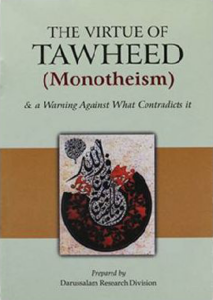In Islam, the concept of Tawheed (the Oneness of God) is paramount. Shirk, the opposite of Tawheed, refers to the act of associating partners with Allah. This concept is deeply rooted in Islamic theology and has significant consequences according to Islamic teachings. In this comprehensive guide, we’ll delve into the implications of Shirk as outlined in Islam, exploring its various aspects and understanding its consequences.
What is Shirk?
Shirk, in Islamic terminology, refers to the sin of associating partners with Allah or attributing divine attributes to anyone or anything besides Him. It is considered the gravest sin in Islam and is categorically condemned in the Quran and Hadith (sayings of the Prophet Muhammad).
Polytheism (Shirk al-Asghar): Worshiping multiple gods or deities alongside or in place of Allah. This includes belief in idols, statues, or celestial bodies as gods with divine powers.
Seeking Intercession: Turning to intermediaries, saints, or deceased individuals to seek their intercession with Allah. While seeking help from fellow humans is permissible, seeking intercession from beings other than Allah constitutes a major Shirk.
Belief in Trinity: In Christianity, the concept of the Trinity—belief in three distinct persons within the Godhead, namely the Father, the Son (Jesus Christ), and the Holy Spirit—is considered Shirk from an Islamic perspective, as it partners with Allah in divinity.
Showing Off (Riya): Performing acts of worship or righteousness to gain praise or admiration from others rather than seeking the pleasure of Allah. While the outward action may appear virtuous, the underlying intention compromises sincerity and devotion to Allah alone.
Vain Oaths: Making frivolous or unnecessary oaths or vows by swearing upon entities other than Allah. This diminishes the sanctity of oaths and undermines the reverence due to Allah as the ultimate authority.
Excessive Attachment to Means: Relying excessively on material means or intermediaries for one’s sustenance or protection, rather than recognizing Allah as the ultimate Provider and Protector. While it is permissible to utilize means, excessive reliance on them to the exclusion of trust in Allah constitutes minor Shirk.
Desiring Approval from Others: Seeking validation or approval solely from creation rather than prioritizing the pleasure and approval of Allah in one’s intentions and actions.
Lack of Trust in Allah’s Decree: Questioning or resisting Allah’s decree and providence, instead of submitting to His wisdom and accepting His decree with trust and contentment.
Seeking Protection from Creation: Placing undue reliance on worldly means or individuals for protection or security, neglecting the ultimate sovereignty and protection of Allah.
Learn More: What is Shirk in Islam?
Consequences of Shirk:
The consequences of Shirk in Islam are profound and far-reaching. They encompass both worldly repercussions and eternal consequences in the afterlife. Here are some key points to consider:
1. Loss of Spiritual Fulfillment: Shirk disrupts the spiritual connection between an individual and Allah. By associating partners with Him, one deviates from the path of true faith and righteousness, leading to a sense of emptiness and spiritual void.
2. Eternal Damnation: The Quran explicitly states that Shirk is an unforgivable sin if one dies without repentance. Surah An-Nisa (4:48) emphasizes that Allah does not forgive Shirk but forgives anything less than that for whom He wills. This highlights the severity of associating partners with Allah and underscores the eternal consequences it entails.
3. Lack of Blessings: Shirk hampers the blessings and mercy of Allah in one’s life. By diverting worship and devotion away from the Creator, individuals deprive themselves of the divine assistance and guidance that Allah bestows upon His sincere servants.
4. Social and Moral Decay: Shirk can lead to societal and moral decay as individuals prioritize their desires or the desires of false gods over ethical principles and communal well-being. This can result in injustices, corruption, and a breakdown of moral values within society.
5. Opportunity for Self-Reflection: Ramadan provides an opportunity for introspection and self-reflection, allowing individuals to assess their actions, behaviors, and spiritual goals. Through increased prayer and recitation of the Quran, Muslims seek guidance and repentance, striving for self-improvement.
6. Misguidance: Engaging in Shirk can lead to spiritual blindness and misguidance. As individuals deviate from the pure monotheistic faith of Islam, they may fall prey to falsehoods and erroneous beliefs, further distancing themselves from the truth.
Repentance and Redemption:
Repentance and redemption hold significant importance in Islamic teachings, offering a pathway for believers to seek forgiveness and rectify their relationship with Allah after committing sins, including Shirk. In Islam, sincere repentance involves acknowledging one’s wrongdoing, feeling genuine remorse for the transgression, and resolving to abstain from it in the future. Repentance is not merely a verbal confession but also a heartfelt commitment to change one’s ways and return to the path of righteousness. Allah, in His infinite mercy, accepts the repentance of His servants, regardless of the magnitude of their sins, as long as it is sincere and genuine. Through repentance, believers can attain redemption and reconciliation with their Creator, reaffirming their faith in the Oneness of Allah and striving to lead a life guided by His teachings and principles
Read More: The Biggest Sin in Islam
Conclusion:
The teachings of Islam regarding the consequences of Shirk emphasize the importance of maintaining the purity of faith and worship. Shirk not only leads to spiritual detriment but also carries severe consequences in the afterlife. By understanding the gravity of this sin and adhering to the principles of Tawheed, Muslims strive to deepen their connection with Allah and lead a righteous life.
Learn More: Minor and Major Signs Before the Day of Judgement
FAQs About Islamic Teachings about Consequences of Shirk:
Can unintentional acts be considered Shirk?
Unintentional acts that do not involve a conscious decision to associate partners with Allah are not considered Shirk. However, it’s essential to be mindful of one’s actions and intentions to avoid inadvertently falling into Shirk.
How can one repent from the sin of Shirk?
Repentance from Shirk requires sincere remorse, seeking forgiveness from Allah, and a firm commitment to abstain from committing the sin in the future. Engaging in acts of worship, seeking knowledge, and surrounding oneself with righteous company can aid in the repentance process.
What is the difference between major and minor Shirk?
Major Shirk involves explicitly associating partners with Allah in His divinity or worship, whereas minor Shirk pertains to hidden or subtle forms of associating partners with Him. Both types are serious sins, but major Shirk carries graver consequences.
Are there any exceptions to the forgiveness of Shirk?
The Quran states that Allah does not forgive the sin of Shirk if one dies in a state of unrepentance. However, sincere repentance before death can lead to forgiveness, as Allah’s mercy encompasses all sins.
How can one protect themselves from falling into Shirk?
To safeguard against Shirk, it’s essential to strengthen one’s faith through regular prayer, recitation of the Quran, and seeking knowledge about Islamic beliefs. Maintaining humility, avoiding arrogance, and seeking refuge in Allah from the whispers of Satan also play a crucial role in protecting against Shirk.













